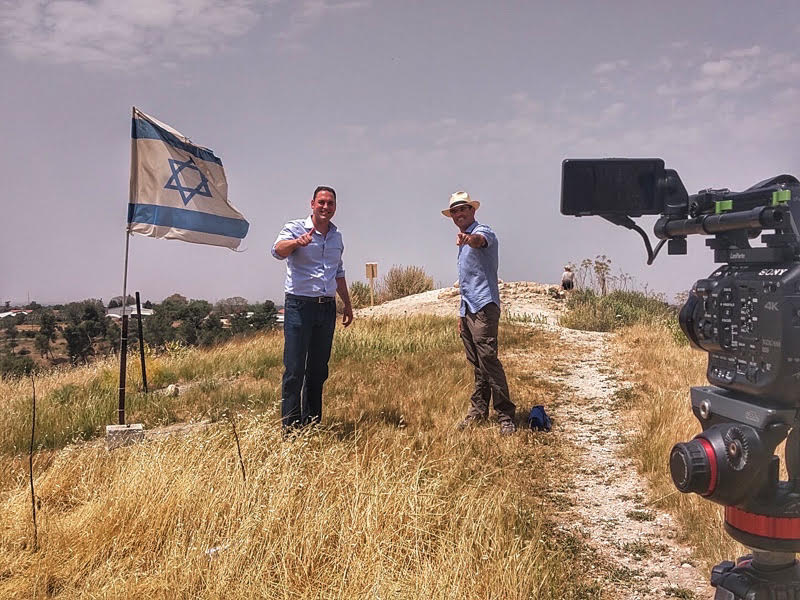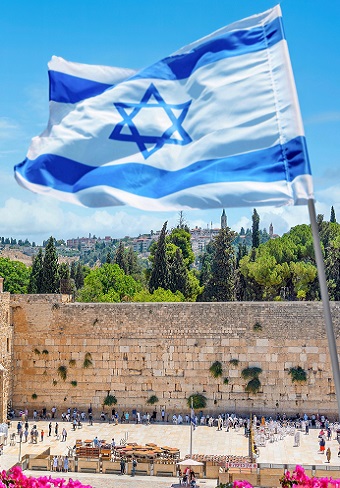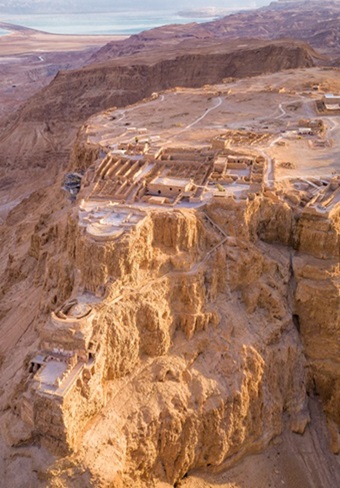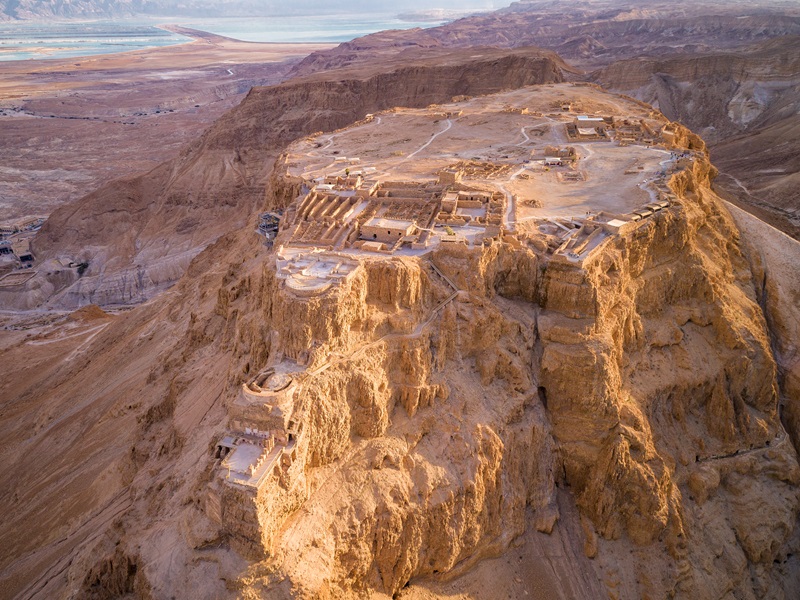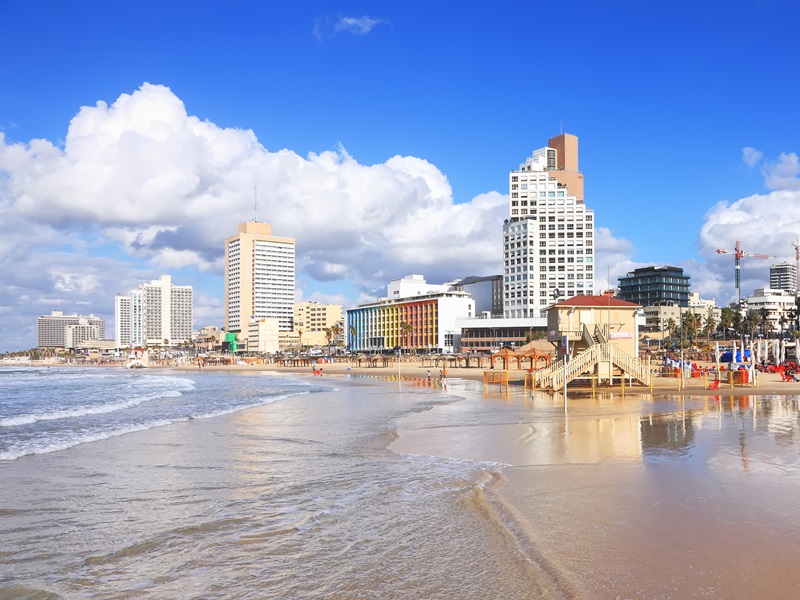Top 10 Things Tourists DO NOT Like About Israel
While Israel captivates visitors with its rich history and vibrant culture, some tourists encounter challenges. Common concerns include security perceptions, driving manners, and varying service standards. However, many find the unique experiences and historical treasures outweigh any reservations. Below are some concerns to be aware of when touring Israel:
The Heat
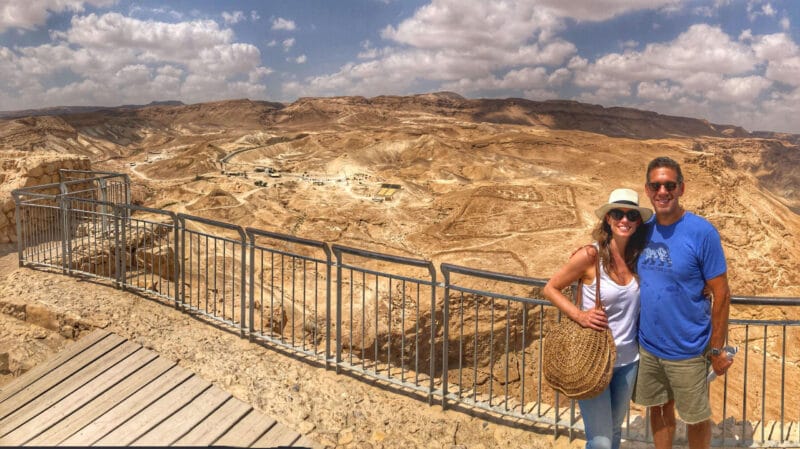 Israel is at the northern edge of the Arabian desert. Its southern half (from the Dead Sea to Eilat) is scorching, even in the spring and autumn. In July and August, temperatures are over C. 30. avoid touring Israel in the summer if you can. On the other hand, the winters are very mild. We recommend the autumn and especially the spring months to tour Israel. The desert blooms in carpets of wildflowers, and it is very comfortable. If coming in the summer months, after all, dress lightly and try to plan the tour to start early in the morning. This way, you also avoid –
Israel is at the northern edge of the Arabian desert. Its southern half (from the Dead Sea to Eilat) is scorching, even in the spring and autumn. In July and August, temperatures are over C. 30. avoid touring Israel in the summer if you can. On the other hand, the winters are very mild. We recommend the autumn and especially the spring months to tour Israel. The desert blooms in carpets of wildflowers, and it is very comfortable. If coming in the summer months, after all, dress lightly and try to plan the tour to start early in the morning. This way, you also avoid –
The Crowds
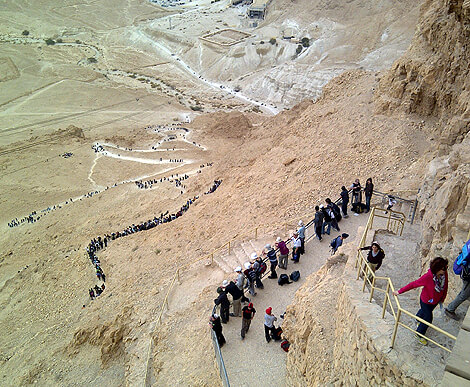 Israel is a small country with a fast-growing population and tourism rate. In the high seasons (March to December), the most popular tour attractions can get very crowded. That is especially true for places like the Temple Mount, Masada, Yad Vashem, the church of the Holy Sepulchre, and more. If traveling in the high season, start early to avoid the crowds. Reaching the top of Masada before the crowds (and the heat) will make a big difference in your experience of the site.
Israel is a small country with a fast-growing population and tourism rate. In the high seasons (March to December), the most popular tour attractions can get very crowded. That is especially true for places like the Temple Mount, Masada, Yad Vashem, the church of the Holy Sepulchre, and more. If traveling in the high season, start early to avoid the crowds. Reaching the top of Masada before the crowds (and the heat) will make a big difference in your experience of the site.
The Costs
Unfortunately, the cost of living in Israel is relatively high. There is a 17% VAT on any purchase, a % 100 tax when buying cars, and high-income tax rates. Being so, the costs of most products and services are pretty high, including tourism services. On the other hand, the service is usually of high quality, as is the infrastructure. Roads are new, and train service is rapidly improving, although –
No Public Transportation on the Weekends
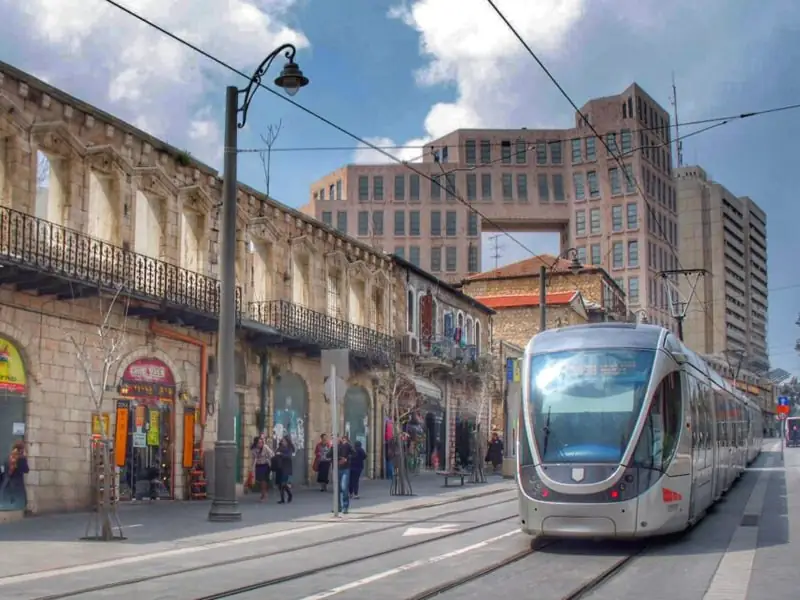 Due to its Jewish nature and the political power of its religious parties, since its foundation, the state of Israel has had a policy of not providing any public transportation on the Sabbath. It stops around 15:00 on Friday and resumes around 8:00 p.m. on Saturday. That is also true of most shopping centers and restaurants. No trains, busses, or shuttles. Only taxis. And speaking of which –
Due to its Jewish nature and the political power of its religious parties, since its foundation, the state of Israel has had a policy of not providing any public transportation on the Sabbath. It stops around 15:00 on Friday and resumes around 8:00 p.m. on Saturday. That is also true of most shopping centers and restaurants. No trains, busses, or shuttles. Only taxis. And speaking of which –
The Israeli Taxi Drivers
Taxi drivers can be colorful characters. They might have an interesting chat during the ride. They can also be unpleasant experiences. By Israeli law, taxi drivers should run the meter during any ride, take you on the shortest route, and provide a receipt. And some will do and offer a pleasant service. Others might not. Except at the airport (where all destinations have fixed rates), always ask to run the meter. Even if he offers a set price, I prefer the meter. You can just trust us. And when getting the change, ensure it’s the right amount, currency, and real coins. Yes, occasionally fake money is given as change, especially by taxi drivers and in the old city, which brings us to the next topic –
Shopping in the Old City
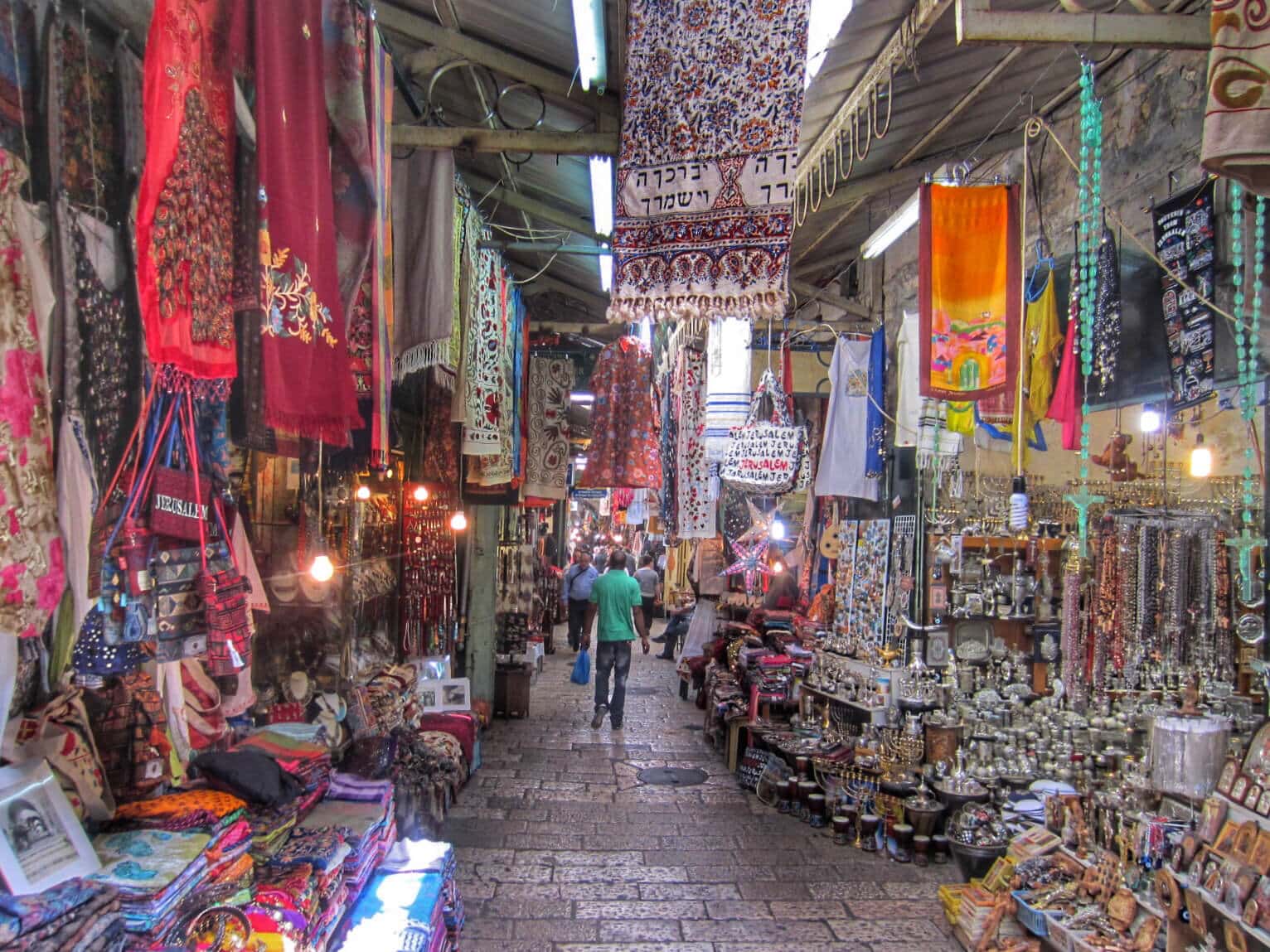 By Israeli law, all items on display in shops should have a price tag. This law is generally employed, but not in the old city of Jerusalem. This can form a frustrating experience when trying to get the best value for your money. Even if you haggle and get a reduced rate, it is usually more than its value. We recommend shopping only in the few shops that present the prices, such as George Souvenir Shop, Eli Kouz Ceramic Shop, Zak Antiquities Shop, and Elia Photography Shop.
By Israeli law, all items on display in shops should have a price tag. This law is generally employed, but not in the old city of Jerusalem. This can form a frustrating experience when trying to get the best value for your money. Even if you haggle and get a reduced rate, it is usually more than its value. We recommend shopping only in the few shops that present the prices, such as George Souvenir Shop, Eli Kouz Ceramic Shop, Zak Antiquities Shop, and Elia Photography Shop.
Hotels Overate Themselves
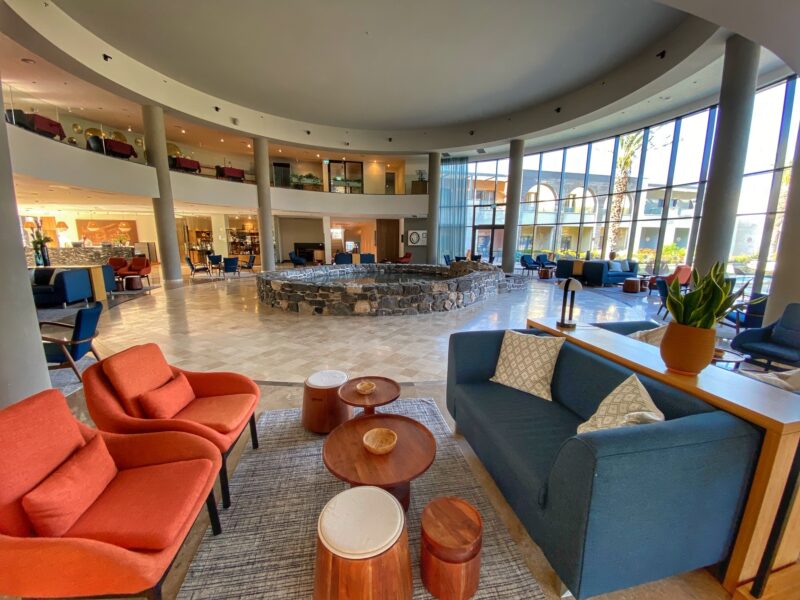 Despite the repeated attempts by the Israeli government to change this policy, Israel’s hotels still label themselves. And guess what – they are very generous regarding their ranking. Most Israeli 5-star hotels have a 4+ star value, and most four-star hotels in Israel are equal to a 3-star hotel in Europe. Most 4-star hotels in Israel are economically poor service. For the best possible hotels in Israel, check out our list here.
Despite the repeated attempts by the Israeli government to change this policy, Israel’s hotels still label themselves. And guess what – they are very generous regarding their ranking. Most Israeli 5-star hotels have a 4+ star value, and most four-star hotels in Israel are equal to a 3-star hotel in Europe. Most 4-star hotels in Israel are economically poor service. For the best possible hotels in Israel, check out our list here.
Driving in Israel
Being a small and crowded country, central Israel’s roads are congested most of the day, especially during rush hour. Moreover, Israeli drivers need more patience when rushing to work or back home. They will cut you and hunk if they think you are slowing them. Parking can also be a challenge, especially in Tel Aviv. If you are not accustomed to Mediterranean driving, try to avoid driving in Israel. You can hire a guide with a van or use a taxi when needed.
Public Beaches at the Dead Sea
 One of Israel’s most popular tour attractions is a swim (or a float) at the Dead Sea. The high salinity and the local mud make a dip in the Dead Sea a magical experience. However, despite the popularity of the activity, its public beaches offer quite an essential experience and mediocre service. It’s even more frustrating when they still charge about $15 for the service. One alternative is to swim at one of the Dead Sea hotels. They offer a lunch + spa + swim package for about $80-$100 per person. It is more costly, but at least it guarantees a proper experience.
One of Israel’s most popular tour attractions is a swim (or a float) at the Dead Sea. The high salinity and the local mud make a dip in the Dead Sea a magical experience. However, despite the popularity of the activity, its public beaches offer quite an essential experience and mediocre service. It’s even more frustrating when they still charge about $15 for the service. One alternative is to swim at one of the Dead Sea hotels. They offer a lunch + spa + swim package for about $80-$100 per person. It is more costly, but at least it guarantees a proper experience.
Israelis Can be Rude.
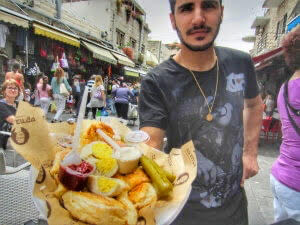 Israelis are energetic, caring, and tempered. They can be very loving and warm – but they can be, at times, loud, aggressive, and even rude. Even with the Corona pandemic, social distancing is still uncommon here. And so is cueing. This is the levant here, after all, not Europe.
Israelis are energetic, caring, and tempered. They can be very loving and warm – but they can be, at times, loud, aggressive, and even rude. Even with the Corona pandemic, social distancing is still uncommon here. And so is cueing. This is the levant here, after all, not Europe.




